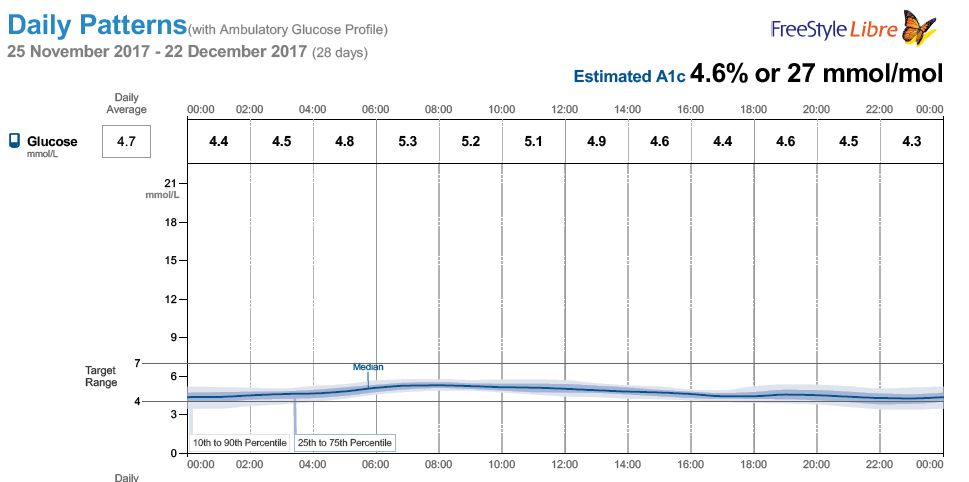Starting my only 2nd EF yesterday. Feeling great but only 18+ hrs in.
Took my BG this morning at ~18 hrs in. 130mg/dl which is typical for me. (A1c 5.4) I clearly have the dawn phenomenon. BP was up +5/+12 points as well from the last couple of days. My BG most morning and with dr drawn blood is 120 to 130.
I have an overactive sympathetic nervous system, hence put on BP meds at ~25yo. I’m now 65yo. My resting heart rate used to be 100+.
I’m way calmer now than when I was younger and I have started a daily mindfulness meditation practice as well. My resting BP is better on average than it has been in many years due to keto and weight loss, but I’m still on 3 meds. My resting heart rate is 55 to 65 ppm.
So I’m wondering, does the dawn BG levels reduce the effectiveness of the fast because I would assume that I get a spike of insulin from the dawn rise? Will fasting reduce my dawn BG levels over time? Is this a chicken and an egg situation? Fast to make it better but fasting may be hampered some from the dawn effect?
I’d love to hear from others about your dawn BG experience and fasting.
I think I will measure my BG this evening after 30+ hrs of fasting.

